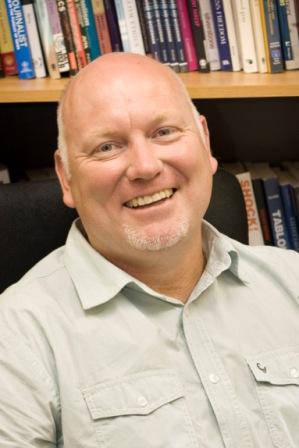
Rhodes University’s School of Journalism and Media Studies (JMS) made two submissions to the Press Freedom Commission (PFC) public hearing in Johannesburg on Monday (30 Jan 2012), and described the ANC-proposed Media Appeals Tribunal to be potentially disastrous for South African democracy.
The JMS and Highway Africa (a project of the School) – each made a submission which were represented by professors Lynette Steenveld, Anthea Garman and Jane Duncan.
The JMS Deputy Head, Professor Herman Wasserman said scholars at the School felt they could make a contribution to the press freedom debate, as scholars and educators, it was very important to do that.
“Many of the graduates from our School will be seeking employment as journalists when they leave university, and as such the conditions under which journalism is practiced in the country are of immediate concern to our graduates,” said Prof Wasserman.
In its submission the JMS cited journalism’s responsibility “to provide the information necessary to enable public participation in democratic practice and processes” as being “vital to a developing democracy”. As such, journalism not only needs to be accountable to the South African public, but must also “employ pro-active strategies to open the news agenda to input from marginalised groups.”
Prof Duncan, the Highway Africa Chair of Media and Information Society, criticised the idea that self-regulation of the press was incapable of preventing journalistic abuse and the call for statutory regulation.
“Self-regulation is widely considered to be the gold standard for effective but independent regulation of the press,” she said, adding that not only was statutory regulation usually distrusted by the print media, but it was also costly for taxpayers.
She urged that it was not only necessary to assess the public’s sentiment towards the press and the Council, but was also important to invigorate the Council’s role in public discourses about journalism.
Prof Duncan further recommended that the Council allow for third-party complaints - an issue that has been particularly contested in recent months.
Regarding the submissions Prof Wasserman said: “the School has always regarded its engagement with the media industries, civil society and the public as important. We do not teach and research journalism and media studies in a vacuum.”
“The School’s participation in the press freedom debates should therefore not so much be seen as a recent desire to ‘speak out’, but as part of our ongoing approach to teaching, research and public engagement,” he added.
By Michelle Solomon
JMS Submission to Press Freedom Commission January 2012
Highway Africa Submission to Press Freedom Commission 30 January 2012
Photo: Prof Herman Wasserman, Deputy Head of the School of Journalism and Media Studies.
